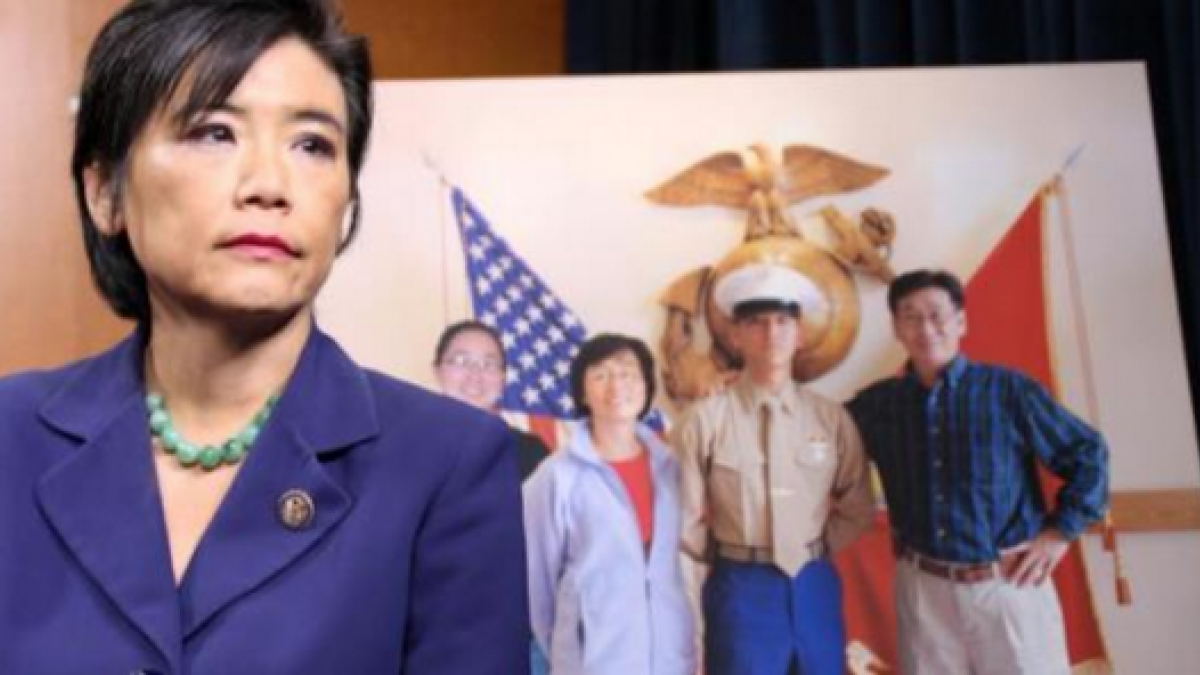Military Hazing

Hazing has no place in our military. It undermines our military readiness and deeply scars volunteers forced to endure it. We must have a zero-tolerance hazing policy in our military.
Harry Lew was a Marine stationed in Afghanistan. One midnight, his peers took it upon themselves to administer what they called "corrective training." They berated him, ordered him to dig a foxhole, and forced him to do useless exercises carrying his heavy full body armor and a 25-lb sandbag. They stomped on his back, kicked and punched him, and poured the entire contents of a sandbag onto his face and in his mouth. It lasted a full 3 ½ hours.
Finally, 22 minutes after they stopped, Harry killed himself with his own gun. He was 21 years old. He was my nephew.
I was shocked and stunned. But I found out that Harry was only the tip of the iceberg. There was Danny Chen, Brushaun Anderson, Hamson Daniels McPherson Jr., Jarrett Wright and countless other victims of hazing, picked on because of race, sex, religion, sexual orientation or just because they were different.
Congressional Hearing on Hazing
I called for a Congressional hearing and Congress held the first hearing on military abuse since 1979. In fact, it might have been the first official hearing on hazing in every branch of the services in Congressional history.
But in the hearing, I heard each branch say that they have hazing under control. That their policies are working. But the stories of Harry and others show that we clearly have work to do to eliminate hazing in the military.
I authored and secured an amendment in the Fiscal Year (FY) 2013 National Defense Authorization Act (NDAA) that required thorough reports on the hazing policies, the tracking and reporting protocol, and training procedures for each military branch. Congress received the reports from each branch of the military in 2014. I believe that the reports we received from the Navy, Army, Marine Corps, and Air Force show that substandard tracking systems are resulting in unreliable data, as there is no uniform procedure to track hazing throughout the military branches.
Hazing in the National Defense Authorization Act
In 2014, I introduced an amendment to the FY2015 National Defense Authorization Act (NDAA) that required the first ever independent report by the Government Accountability Office (GAO) on the anti-hazing efforts of each branch of the military and the Coast Guard. On February 9, 2016, Congress received an independent assessment of hazing in the military. The report concluded that Department of Defense (DOD) has not fully implemented anti-hazing policies, does not know the extent of current implementation, training for servicemembers is unclear, and hazing tracking systems are incomplete and underdeveloped.
Given these objective findings, I testified in front of the House Armed Services Committee (HASC) in March 2016. I called for stronger anti-hazing policies in the FY2017 NDAA. Congress should receive annual reports on DOD's anti-hazing efforts. Further, DOD must implement department-wide tracking systems that are uniform, comprehensive, and include information on protected classes such as race and religion. Training should be improved for all command levels so all servicemembers can identify it and stop it when they encounter it. Lastly, DOD needs to evaluate the prevalence of hazing in a meaningful way. It is only with these changes that we can eradicate hazing in the military.
I am pleased to say that all four of these policy recommendations were included in the House-passed version of the FY2017 NDAA. Congress has just begun to see the results from these studies, and I will continue to work tirelessly to ensure that all branches of the military and the Coast Guard are effectively implementing anti-hazing policies and reporting incidents as they occur.
Share Your Story
At the time of Harry's death, I didn't know how common his tragedy was - how many other service members had suffered as he did. But the letters started pouring in – day after day, week after week. Mothers, friends and service members themselves wrote in excruciating detail what they and their loved ones endured.
I am committed to being a voice for other victims of military hazing, who often feel like they have nowhere to turn. I encourage families and servicemembers to share their stories. Congress needs to hear from you.